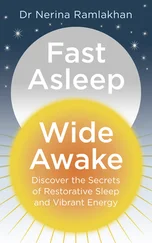Adult sleep A recent US National Sleep Foundation survey looking at the relationship of sleep problems in adults aged between 55-84 found:
• Nearly one in four adults had at least four medical conditions.
• Depression, heart disease, pain and memory problems were most associated with insomnia.
• Ninety per cent of those that did not have any medical condition thought their sleep quality was good or excellent. This went down to 78 per cent if they had 1-3 medical conditions, and 59 per cent if they had four or more conditions.
• Obesity, arthritis, diabetes, lung disease, stroke and osteoporosis were more likely to be associated with other sleep problems (e.g. snoring, restless legs).
The role of food and drink in sleep is often overlooked but there is increasing evidence that healthy eating habits can have many beneficial effects. The first stage is to identify and eliminate the main sleep spoilers.
UK safe limits for alcohol
• Men should drink no more than 21 units of alcohol per week (and no more than four units in any one day).
• Women should drink no more than 14 units of alcohol per week (and no more than three units in any one day).
• Pregnant women: if you have one or two drinks of alcohol (one or two units), once or twice a week, it is unlikely to harm your unborn baby. However, the exact safe limit is not known.
Drinking small amounts of alcohol (especially a glass of wine with meals) can be pleasurable, and its benefits well recognized. The problem comes when alcohol is drunk in large doses.
Drinking alcohol at night is commonly believed to be helpful for sleep. This is a myth. Drinking large doses may make you fall into a deep sleep straight away, but as soon as the immediate effects of the alcohol wear off (usually after 3-5 hours), you will wake up feeling exhausted, and your sleep is likely to be disrupted for the rest of the night. Drinking large amounts of alcohol can depress brain activity and induce unconsciousness. Breathing is also invariably impaired, leading to snoring. Alcohol also has a diuretic affect, which means that, depending on how much you’ve drunk, you could end up getting up to go the toilet several times during the night.
Caffeine is a very powerful stimulant that is known to cause the delay of sleep onset. Studies have shown that a dose equivalent to one cup of coffee taken at bedtime can both increase the time taken to fall asleep and decrease sleep quality, especially in non-REM deep sleep (see page 19). In a few individuals, a dose of coffee in the morning can also have an effect the following night, indicating that extremely low concentrations of caffeine can affect sleep. Like all stimulants, caffeine may make you feel increasingly alert during the day, but, as well as causing insomnia, prolonged, high-dose usage (more than six cups of coffee a day) can lead to the following nasty side-effects:
How much alcohol is in your drink?
| Sample drink |
Quantity |
Alcohol by volume |
Units |
| Can of lager |
500ml |
4.00% |
2 |
| Glass of cider |
500ml |
4.00% |
2 |
| Alcopop |
400ml |
5.00% |
2 |
| X-Strong lager |
500ml |
8.00% |
4 |
| Glass of wine |
160ml |
12.50% |
2 |
| Cocktail |
125ml |
40.00% |
5 |
| Shot of spirits |
25ml |
40.00% |
1 |
Note: A unit is 10ml of alcohol, whether it is spirits, lager or wine.
• persistent anxiety
• an inability to concentrate
• increased muscle tension
• diuresis (increased urination)
• agitation, excitement and panic attacks (with high doses)
• vertigo, dizziness, tinnitus, convulsions
• increased body temperature
• confusion, disorientation, paranoia
• palpitations
• nausea
A good night’s sleep does not result from high doses of alcohol. A night’s sleep deprivation will enhance the effects of alcohol and after five nights of partial sleep loss, three drinks will have the same effect on your body as six would on a regular night.
Caffeine
• Caffeine is readily absorbed and peak concentrations occur 30-60 minutes in young adults after ingesting it. High doses slow the metabolism down and can remain in the brain for 9-15 hours.
• Percolated coffee usually contains more caffeine than instant. If the coffee grounds are boiled during preparation, as is common in Scandinavian countries, the caffeine content can be as high as 500mg per cup.
• Tea brewed directly from crushed leaves has more caffeine than tea produced with a tea bag.
• Plain chocolate contains more caffeine than milk chocolate.
Caffeine enters the bloodstream very quickly and can take between three and seven hours to leave the body. Its effects on people can be variable – some people regularly drink caffeine-laden drinks at night-time with no ill-effects; others cannot even drink one cup in the morning without it affecting them at night. Scientists believe this may be because caffeine-sensitive individuals metabolize the substance more slowly (see opposite, for factors involved in metabolizing caffeine).
Research shows that if you are not a habitual coffee drinker, the effects will be greater; and that caffeine metabolism varies with age (children, for example, tend to metabolize it more quickly).
Although caffeine is normally associated with coffee, it is found in medicines and many other foods and drinks, namely:
• tea
• chocolate, cocoa and all other chocolate-flavoured products
• over-the-counter stimulants (e.g. Pro-plus)
• painkillers (e.g. Anadin)
• herbal preparations (e.g. Guarin)
• some cola drinks
• Lucozade
• ‘energy’ drinks (e.g. Red Bull)
To find out how much caffeine you are really consuming, see the main caffeine offenders, opposite.
The absorption and metabolism of caffeine
Varied or little effect
HeredityCaffeine metabolism is controlled by many genes and racial differences exist
GenderExercise and stress have no reliable effect on the absorption or metabolism of caffeine
PregnancyThere are no placental barriers to caffeine so the foetus is continuously exposed
Slowers-down
Oral contraceptives, late pregnancy and liver disease cause caffeine to be eliminated more slowly
It has been thought that grapefruit juice, though not other citrus juices, slows down metabolism. The data for this has now proved controversial
Some drugs like cimetidine, disulfiram, even alcohol, may slow down caffeine metabolism
Speeders-up
Smoking induces liver enzymes which break caffeine down
Rifamprin
The main caffeine offenders
| Foodstuff |
Plant |
Plant caffeine content w/w |
Caffeine dose/‘cup’ |
| Tea |
Dried leaves |
1-5% |
10-100mg (average 40mg) |
| Coffee |
Beans |
0.75-2.0% |
30-150mg |
| ‘Decaffeinated’ coffee |
Beans |
0.75-2.0% |
5mg |
| Cocoa |
Seeds |
0.013-1.7% |
2-50mg (average 5mg) |
| Chocolate |
Seeds |
|
2-63mg/50g |
| Cola drinks |
Nuts |
1.5-2.0% |
25-100mg (synthetic) |
Читать дальше












